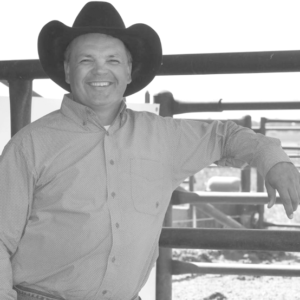Whether we realize it or not, garbage is an important thing to us. If it wasn’t, we wouldn’t make so much of it! And all that garbage is generated by us freely acquiring goods in an incredibly competitive free marketplace, where choice is everywhere and the consumer is king.
Can you imagine living in a place where there was no choice among goods or services? One brand of car. One brand of clothing. One doctor. One barber. One sewer service. One garbage collector. Stop right there – because in many if not most Montana communities, there is but one brand of garbage collection to choose from, which means no choice at all. The cost and quality of that service is locked in, and cannot be influenced by consumer choice.
There is probably no single area of government monopoly creation that is more harmful and less logical than in the Class D garbage collection industry, where state law puts potential competition through a near-impossible certification process at the PSC. Under the pretention of “consumer protection,” monopolies and near-monopolies are effectively established in almost every Montana community, by slamming the door to market entry and abrogating Montanan’s fundamental right of private enterprise. It is government protectionism at its worst, inevitably resulting in much higher prices and lower quality service than would exist in an active, open, competitive marketplace. Every consumer suffers, while a small number of coddled and protected companies reap inordinate profit, by avoiding competition and shedding normal business risk.
The protected industry, benefitting with its often obscene profit margins, will bring forth a flood of sophisticated-sounding arguments, of course. For example, they will argue that “uncontrolled competition” destabilizes the market and threatens the quality and reliability of service to the public. They will warn that “upstart operators” might dump their trash in ditches and on public land, and on and on. I have heard all these claims and more before the PSC, and I am here to tell you that they are unmitigated nonsense. I have yet to see one scrap of evidence that proves their arguments. How can there be? They are arguing against the role of competition itself.
How much are Montana trash haulers in monopolized markets over-charging their captive customers? Because the PSC does not regulate their rates, complete information is not available. But as an example, it was revealed during one of the PSC’s application dockets that Republic Service’s 2014 Montana Annual Report showed an eye-popping statewide average profit of 41 percent. This compared with record testimony showing Oregon’s profit margins averaging 8 to 10 percent.
Monopolistic companies are not, by definition, bad providers. They are simply creatures of the market conditions under which they operate. If there is no competition to drive down rates, there is much less incentive to keep rates low. The function of price signals in the marketplace is removed. Likewise, if there is no threat of losing market share to another carrier, there is less reason to vigorously pursue a consumer’s business with new offerings, better deals, etc. Where else can that consumer go?
Rep. Caleb Hinkle’s HB 338 would put an end to these state-sponsored monopolies, but incumbent garbage companies, having a strong vested interest in the status quo, are sure to wage a vigorous, fear-mongering campaign to kill the Hinkle bill and maintain their privileged position. The consumers, as usual, will be underrepresented at the legislative hearings.
Who are these consumers? They include not only every homeowner, but most every landlord, manufacturer, service business, retail business, school district, college, university, local government, and just about every other entity that produced solid waste. All of them deserve the best possible service at the lowest achievable cost. They will never see that happen in the absence of industry competition, where monopolies are government-created but not government regulated.
The stakes could not be higher. Let’s replace senseless monopoly with consumer choice and economic freedom. HB 338 is the answer.
Roger Koopman recently retired from the Public Service Commission, having represented PSC District 3 for 8 years. He has also served two terms in the state House of Representatives from Bozeman

